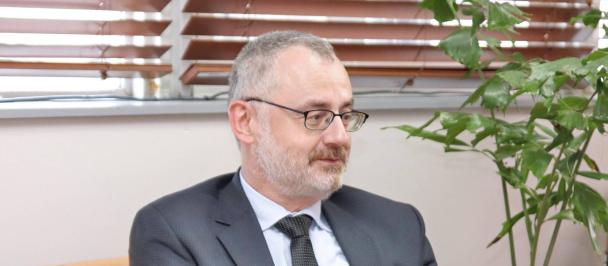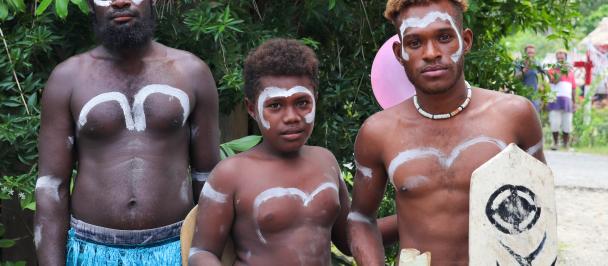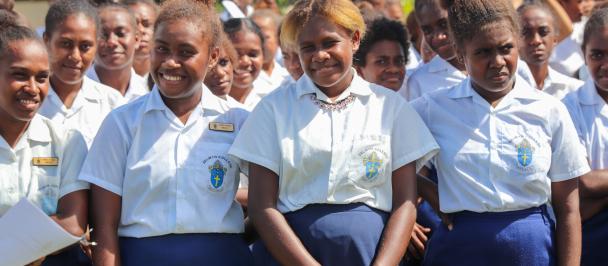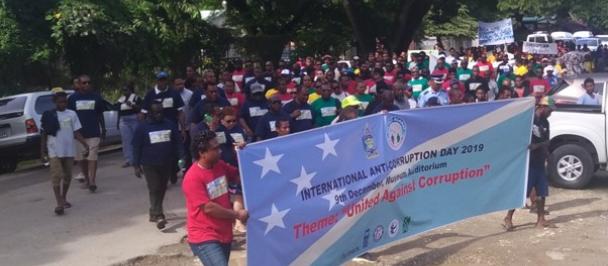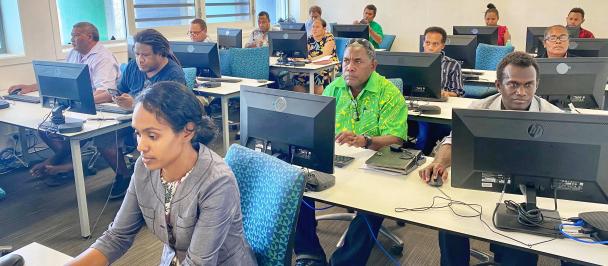Reaching the unreached with essential health services in the Pacific
December 9, 2022
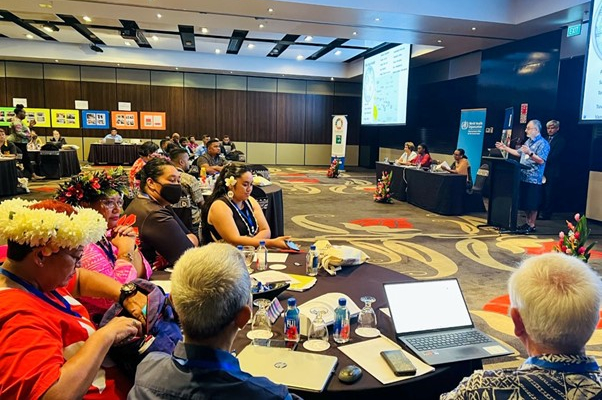
Levan Bouadze, Resident Representative at the UNDP Pacific Office in Fiji gives opening remarks at the Technical Workshop of the Pacific Islands and Countries on Reaching the Unreached for TB/HIV/STIs.
As the Western Pacific region emerges from the COVID-19 pandemic, there is an urgent need to revitalize health services and ensure all populations have equal access. To this end, over 150 participants from 11 countries recently gathered in Natadola, Fiji for a regional workshop to improve the quality of and access to health services related to tuberculosis (TB), TB-diabetes, HIV/STIs and Hepatitis.
In delivering the opening remarks, Levan Bouadze, Resident Representative for the UN Development Programme (UNDP) Pacific Office Fiji, stated, “It is critical to build back better, more equitably and inclusively from the COVID-19 pandemic. This calls for a more precise focus to reach the people most affected and at risk for TB and HIV, and to address inequities.”
He added, “This will promote synergies under a universal health coverage and primary health care framework and contribute to achieving the goals of the 2030 Agenda for Sustainable Development.”
The workshop was an opportunity to build capacity, enhance understanding and awareness, and overcome challenges towards supporting countries to achieve the WHO END TB Strategy and global HIV targets for 2025 and 2030. Participants included key health workers (clinicians, nurses, lab workers, pharmacists, coordinators, and programme managers), representatives from civil society organizations, technical partners, and officials from Ministries of Health from across the region.
The meeting was divided into five overlapping sessions, focusing on (1) TB management and care; (2) TB and diabetes diagnosis, treatment, and management; (3) HIV/STI case management; (4) TB laboratory system strengthening; and (5) procurement and supply chain management.
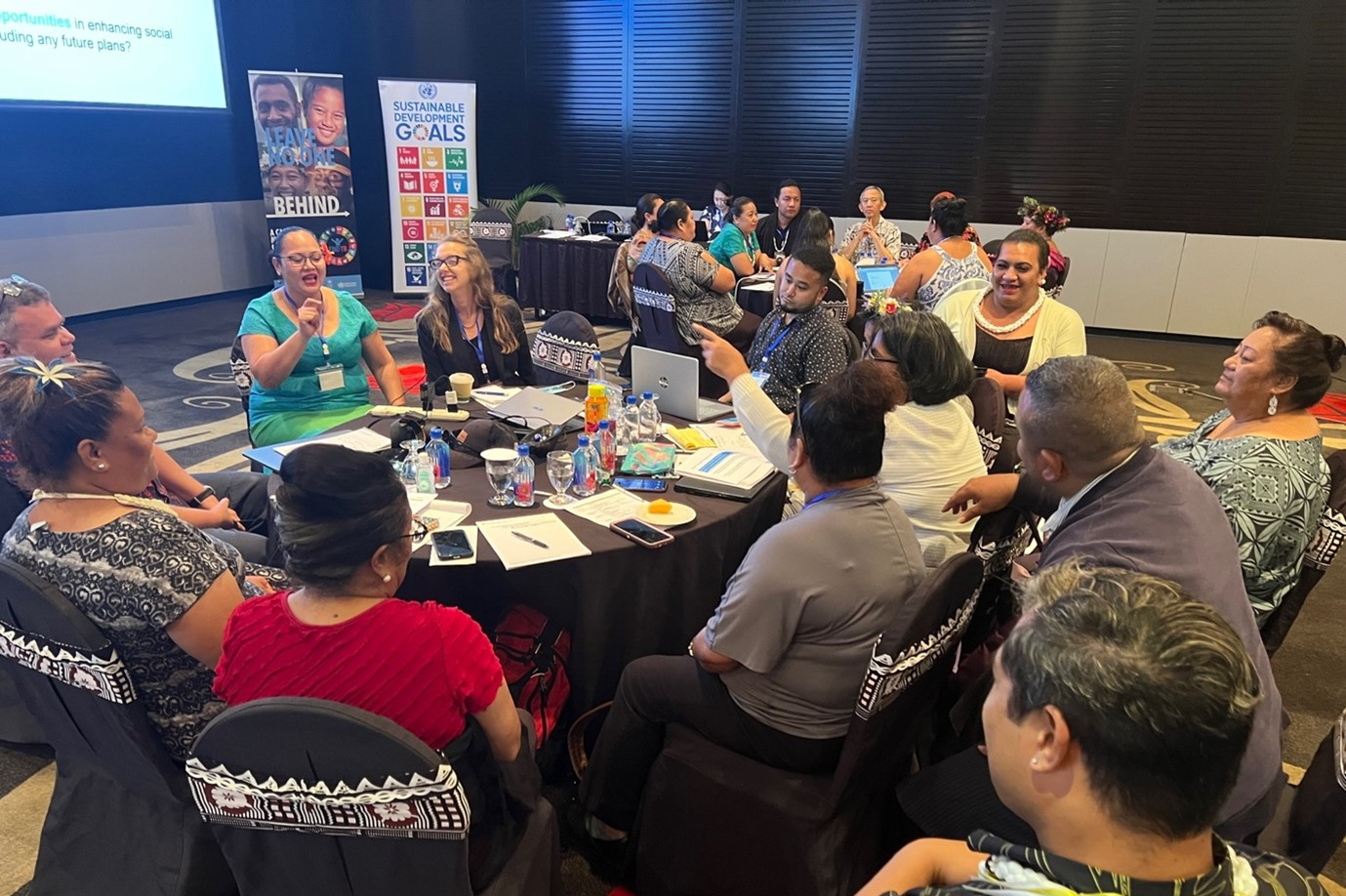
Participants engage in discussion the TB and diabetes mellitus workshop.
Gayane Tovmasyan, Programme Manager with UNDP Pacific Office in Fiji, said, “This was the first regional workshop since COVID-19 hit, and it has been beyond expectation. It has been inspiring to see the active participation of the countries, sharing experiences, learning from best practices, and interacting actively.”
She added, “We noted the countries were dealt with so many challenges due to the pandemic, in addition to TB related challenges. It has been encouraging to hear from our frontline workers – their determination and collaborative efforts of governments and communities have brought about great results. We heard from participants about their innovative approaches, using new technologies and improving integration with primary health and public health to deliver services, which were continued despite all the challenges."
Presentations and discussions over the course of the workshop addressed programme performance, treatment success rates, preventative treatments, and success stories. The experiences, approaches, challenges, and innovations sparked lively debates and knowledge-sharing among participants and gave technical specialists the opportunity to share their skills and suggest potential solutions in the countries.
“It is great to see that WHO has set up standard operating procedures (SOPs) and tools for national TB programmes specifically for Pacific Island countries,” said Dr Vaimaila Salele, Medical Officer in Charge - Communicable Disease Clinic, Ministry of Health, Samoa. “In going through the SOPs in today’s session, I can see that it is adaptable to our situation and something that is doable."
Dr Salele further shared her thoughts on the TB management and care session, held over the first three days of the regional workshop. She said, "Samoa has just come out of measles and the COVID-19 pandemic, and this workshop has really been refreshing for us in terms of our TB programmes. Having our civil society organizations here with us has been beneficial as we see their participation here as the beginning to greater engagement and collaboration.”
She added, “It is a very good opportunity for them to be involved and collaborate with the Ministry of Health in advocacy and awareness. As we all know, CSOs are closer and well connected to the communities.”
At the end of the laboratory system strengthening session, Clarette Matlab, Bpharm Pharmacist, Chief Ancillary Services, Belau National Hospital, Ministry of Health Palau, shared her reflections.
“As a pharmacist and procurement officer, the sessions have made me realize the gaps in our systems and facilities. The group work sessions have been really useful because through knowledge sharing, we learn from other countries and also offer ideas, and in turn we are upgrading and up-skilling each other,” said Matlab.
The workshop was organized by the United Nations Development Programme (UNDP), through the Multi-Country Western Pacific Integrated HIV/TB Programme, and the World Health Organization (WHO), from 14-25 November 2022.

 Locations
Locations